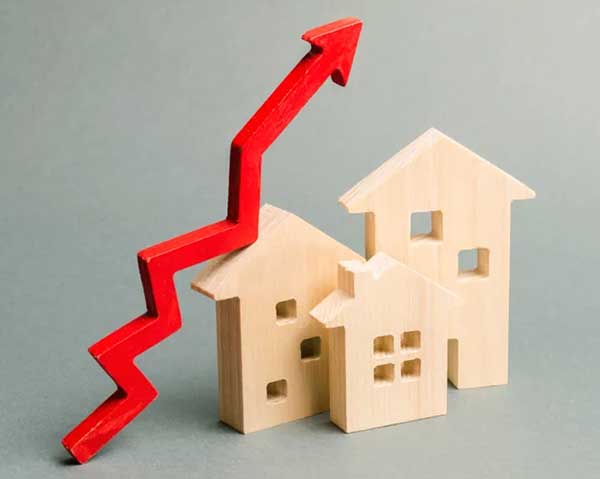As the world moves towards a cleaner and more sustainable future, businesses are feeling the pressure to reduce their carbon footprint and adopt environmentally friendly practices. One area where companies are making significant changes is in their use of gas. From heating and cooling to powering machinery, gas has been a vital fuel source for many industries, but the rising focus on sustainability is forcing companies to rethink their reliance on gas.
The business gas industry is in the midst of a significant transformation, with new technologies and regulations disrupting traditional practices. That’s why it is important to make a business gas comparison and understand how the changing landscape is affecting your operations. Keep reading to learn more.
The Growing Need for Business Gas Solutions
In recent years, businesses have seen a growing need for gas solutions that are efficient, cost-effective, and environmentally friendly. As more companies focus on sustainability and reducing their carbon footprint, the use of renewable gas solutions has become a trend in the business gas industry. This increasing demand for sustainable sources of energy has influenced gas suppliers to invest in new technologies and explore alternative methods of producing and supplying gas. The future of business gas looks promising as more companies prioritize sustainability and gas suppliers respond with innovative solutions to meet these demands.
Impact of Shifting Energy Regulations on the Business Gas Market
The introduction of new energy regulations and policies has been a major driving force for businesses to re-evaluate their gas consumption and energy procurement strategies. In recent years, governments around the world have been implementing various energy regulations aimed at reducing carbon emissions and promoting renewable energy sources. Here is the impact of some of the recent regulations on the business gas market:

- In the United States, the EPA has introduced new requirements for businesses to report their greenhouse gas emissions. This encourages companies to focus more on sustainability and reduce their reliance on traditional fuels.
- In Europe, the European Union is planning to introduce a carbon border tax to incentivize businesses to use more sustainable sources of energy.
- In the United Kingdom, the government is rolling out a Green Gas Levy that will place extra costs on companies for using fossil fuels.
These regulations are driving businesses to explore alternative energy sources and rethink their reliance on traditional gas solutions. By adhering to these regulations, companies can reduce their overall carbon emissions while gaining a competitive edge in the market.
Key Drivers of Growth in the Business Gas Industry
The future of business gas is largely dependent on several key drivers of growth in the industry.

- The first driver is technological advancements in energy efficiency and utilization, which have led to the development of more efficient gas-fired appliances and systems.
- Second, the growing demand for natural gas in developing countries is expected to provide a significant boost to the global business gas market.
- Third, the increasing trend towards environmental sustainability has resulted in a focus on renewable energy sources, such as biogas and hydrogen, which also have the potential to fuel growth in the business gas industry.
- Lastly, regulatory measures aimed at promoting competition and consumer protection are expected to drive growth in the industry by creating a level playing field for all market players and ensuring fair pricing practices.
The Role of Data Analytics in Optimizing Gas Usage for Businesses
Data analytics is set to play a crucial role in optimizing gas usage for businesses in the coming years. With the increasing sophistication of data analysis tools, companies can now access and make sense of vast amounts of data from various sources. This data can help businesses in the gas industry identify patterns, trends, and inefficiencies in their operations, allowing them to take the necessary steps to address these issues. By analyzing data in real time, companies can optimize the usage of gas, minimize waste, and reduce costs.
Additionally, data analytics can help businesses preempt potential issues, allowing them to take proactive measures to maintain consistent and efficient operations. Overall, the role of data analytics in optimizing gas usage for businesses is set to become increasingly important in the years to come, providing significant benefits to those who utilize these tools effectively.
Challenges Faced by the Business Gas Industry and Potential Solutions
The business gas industry has gone through significant changes in recent years, propelled by an increase in competition and advancements in technology. However, several challenges still exist that need to be addressed to sustain the industry’s growth. One of the major challenges experienced in the industry is the pressure to meet environmental regulations, especially with the increasing demand for renewable energy sources. Another challenge relates to the rising costs of energy production, particularly with the growing usage of natural gas.
As a result, businesses need to identify innovative and sustainable approaches to sourcing energy. In response to these challenges, potential solutions include investing in renewable energy sources like solar and wind power, implementing energy-efficient technologies, and embracing carbon offset initiatives. These measures will ensure a sustainable future for the business gas industry while reducing the environmental impact associated with traditional energy production methods.
The Importance of Sustainability and Corporate Social Responsibility
In the modern world, the importance of sustainability and corporate social responsibility (CSR) cannot be overstated, and the gas industry is no exception. In fact, it is becoming increasingly clear that sustainability and CSR will play a crucial role in the future success of gas companies. These two principles are no longer simply “nice-to-haves” or “bonus” features, but rather they are becoming key components of business strategies.
Customers, investors, and other stakeholders are paying close attention to a company’s efforts to reduce their carbon footprint and improve the well-being of their communities. Therefore, gas industry players that prioritize sustainability and CSR will have an edge in attracting and retaining customers, maintaining investor confidence, and preserving their social license to operate. For these reasons, sustainability and CSR will be crucial factors in determining the future success of the gas industry.
In Conclusion
The future of business gas seems bright and full of opportunities. Embracing digitalization, renewable energy sources, and innovative technologies will be crucial for businesses to remain competitive and sustainable in the long run. Additionally, the growing awareness of environmental and sustainability concerns will shape the gas industry towards greener and cleaner solutions. As we move towards a more environmentally conscious era, businesses that adapt to this transition will thrive and pave the way for a brighter future.
This content is a joint venture between our publication and our partner. We do not endorse any product or service in the article.


